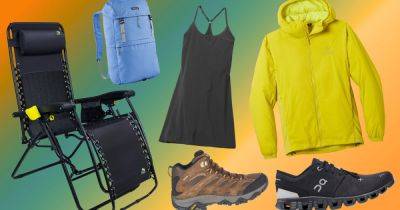This Doctor Has Treated Thousands Of Skin Cancer Cases. Here Are 9 Things He'd Never Do.
For those living above the equator, summer is in full swing and that means lots of sun — and the potential for sun damage. So if we want to stay safe, and keep our skin looking great, we obviously need to protect it — but using what? And how much? And how often?
These are just a few of the many questions that we — Raj Punjabi and Noah Michelson, the hosts of HuffPost’s “Am I Doing It Wrong?” podcast ― had for Dr. Anthony Rossi, a dermatologist and surgeon at Memorial Sloan Kettering Cancer Center, when he dropped by our recording studio.
Listen to the full episode by pressing “play” below:
Rossi, who has worked with thousands of skin cancer patients, noted that most of us know we need to shield our skin, but we’re befuddled by all of the misinformation and myths (especially on social media) about how and when to do it. To help clear up some of the confusion, he shared nine things that he would never do when it comes to SPF, sunscreen and sun protection.
1. Believing That An SPF Number Indicates How Long You Can Be Outside
“SPF” stands for “sun protection factor,” and an SPF number indicates the protection level that a topical product provides compared with wearing no sunscreen — not the number of minutes you can spend in the sun while wearing it.
“We say SPF 30 or above is pretty much good for sun protection for all people because at that point of the SPF curve, at 30, it pretty much levels off,” Rossi said. “So, an SPF 50 won’t give you that much more protection [than an SPF 30].”
2. Choosing A Sunscreen That Doesn’t Offer ‘Broad-Spectrum Protection’
You want a sunscreen that provides “broad-spectrum” protection because it guards against two types of ultraviolet radiation: UVA and UVB.
“UVB causes burns and UVA







